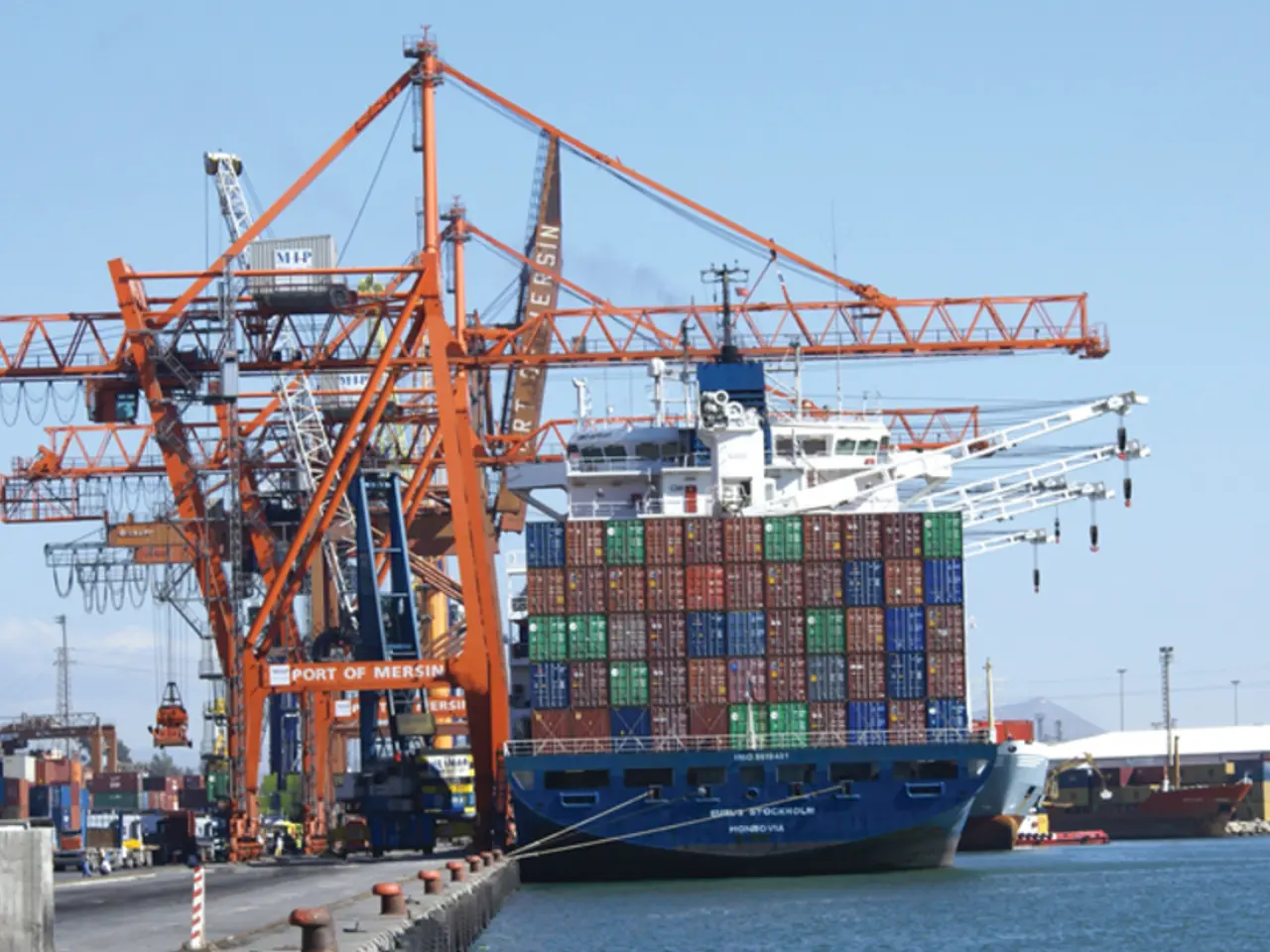Gautam Adani Steps Down from Nation's Major Private Port Operator: Exploring the Implications
The Adani Group, a prominent Indian conglomerate, is currently under intense legal and regulatory scrutiny due to allegations of sanctions violations and broader governance concerns. U.S. authorities are investigating whether Adani firms imported sanctioned Iranian liquefied petroleum gas via Mundra Port, a claim the group denies.
In a significant move, Gautam Adani, the billionaire businessman and Executive Chairman of Adani Ports and Special Economic Zone (APSEZ), has stepped down from his position, transitioning to Non-Executive Chairman. This re-designation allows him to focus on broader group strategy and other ventures within the Adani Group, while also complying with corporate governance norms under India’s Companies Act, 2013.
The shift in leadership at APSEZ, with the appointment of Manish Kejriwal as an independent director, reflects a broader strategic pivot towards stronger corporate governance and increased external accountability. This aligns with a trend among major Indian conglomerates moving from promoter-led to professionally governed entities, partly in response to prior challenges such as the 2023 Hindenburg report that questioned the Adani Group’s financial transparency and governance practices.
Despite the legal pressures, APSEZ, the most valuable listed entity of the Adani Group and the largest private port operator in India, remains operationally strong. The company posted a 21% revenue surge and 11% growth in cargo volumes in the April-June quarter. However, Gautam Adani's sudden exit has sent shockwaves among market watchers and investors, raising new questions over the Adani conglomerate's future direction and leadership stability.
The fallout continues to spread, with Kenya's government scrapping two Adani infrastructure deals worth $2.6 billion. U.S.-based institutional investors are reportedly reevaluating their exposure to the Adani conglomerate, following the sweeping $250 million bribery and fraud investigation launched by U.S. prosecutors and the SEC, targeting Gautam Adani and his associates.
The Hindenburg Research report alleges that the Adani Group misled U.S. investors to secure funding and bribed Indian officials to bag billion-dollar energy contracts. The group vehemently denies these claims, labeling them as baseless and vowing to exhaust all legal options.
As the investigation continues, the Adani Group will need to address these allegations and work towards restoring investor confidence, while also strengthening its corporate governance practices to meet the growing expectations of regulators and stakeholders.
- The recent news regarding the Adani Group's financial and governance issues has led U.S.-based institutional investors to reconsider their investments in the conglomerate.
- The Adani Group, amidst legal scrutiny, is attempting to address allegations of misleading U.S. investors and bribery, and work towards restoring investor confidence.
- In response to the 2023 Hindenburg report's claims about the Adani Group's financial transparency and governance practices, there's a growing trend among Indian conglomerates towards stronger corporate governance and increased external accountability.
- The business world closely watches the Adani Group as the investigation into their alleged sanctions violations and broader governance concerns unfolds, with many awaiting signs of improved corporate governance practices.




